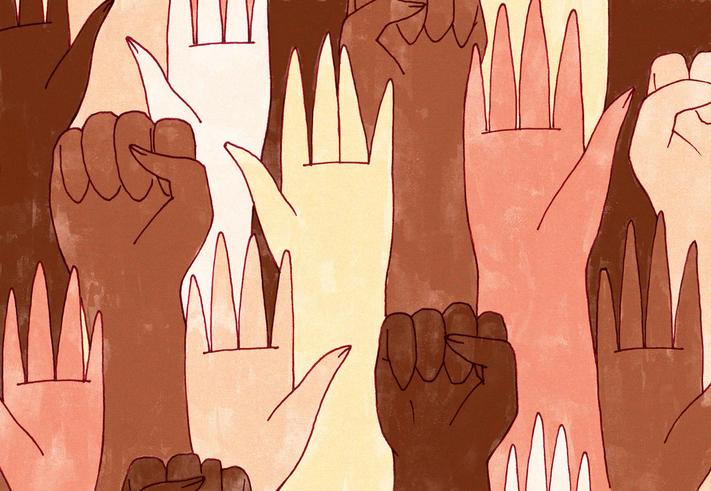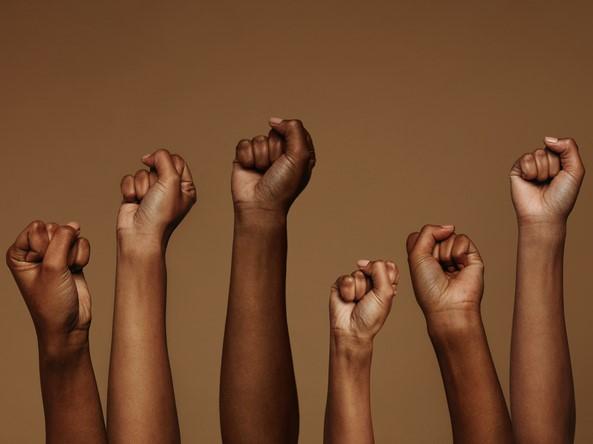
Lots of talk about diversity in corporations, but what about universities?

More than 75 per cent of the faculty at America’s colleges and universities – from professors to administrators – are white, according to the US Department of Education’s National Center for Education Statistics. It’s a ratio that falls short of aligning with the current and future demographic realities of our country, and one that has administrators striving to bring more diversity into their institutions.
But the issue of diversity in academia extends well beyond recruiting. The pipeline of diverse PhDs has been growing at a steady rate, increasing sixfold since 1994. Yet, based on our work at The PhD Project, I know that once minority PhDs secure a position in academia, they often feel left adrift, alone to navigate a nuanced, insiders’ world that doesn’t include them.
- Collection: Being Black in the academy
- THE podcast: how to navigate HE as a woman of colour
- The promotion process needs bigger, better data if we’re to make it fairer
Universities need to take a hard look at the experience that diverse faculty have from day one of their academic careers, or the issue of diversity in academia will continue well into the future. For real progress to be made, universities need to solve three persistent issues: restricted access to networks, unconscious bias in the publication process, and unwelcoming institutions.
Access to networks
First, universities need to do more to facilitate equal access to formal and informal networks. As humans, we tend to stick with people we know, people who look like us. In academia, it is no different. People of colour are often left out. We hear time and again from PhDs that the networks within universities are not available to them.
These networks are often thinktanks for problem-solving, and they can become influencers on decisions at the university level. So a lack of inclusion not only hurts diverse PhDs individually, it hurts the university as a whole. The support that is created within networks is critical for the growth and advancement of higher education professionals.
Facilitating introductions can go a long way to addressing this issue. For example, The PhD Project provides funding for our doctoral students to attend their academic association conferences to help them meet and establish relationships with leaders in their fields. The act of bringing faculty together can inspire other points of view and encourage diverse perspectives for high-level decision-making, in turn strengthening universities and positioning them for success in the long term.
The publication process
Second, the higher education sector should work to eliminate unconscious bias in the publication process. Being published opens many doors for academics, builds credibility and helps forge connections with minds across the country.
Yet, as our members share in their research, minority academics still struggle to be published. This comes down to two core issues. First, reviewers for these publications themselves are overwhelmingly white. In fact, at one publication, there is only one African American out of nearly 200 reviewers. The solution here is simple – increase diversity among the reviewer population.
The second issue is equally solvable. While blind reviews were intended to help level the playing field, they have done just the opposite. The academic community is so close-knit that it knows who’s written a piece, whether a name is present or not. This enables the papers submitted by people of colour, who, as mentioned above, are already left out of critical networks, to be sidelined once again with little to no thought. Whether this is a conscious or unconscious situation, the blind-review process should be abandoned in favour of a system that proactively and thoughtfully seeks to publish diverse voices with the same enthusiasm as their white and highly networked counterparts.
If publications need to strengthen their connections to diverse faculty, there are partners who can help. The PhD Project, for example, invites academic journal editors to our conferences to meet our students and faculty, and works directly with several journals to help to diversify their editors and publishers.
Be more welcoming
Third, institutions can help alleviate the unwelcome feeling that often greets minority academics. Aspiring minority professors understand that they will often be the only non-white face in the room. Whether they’ve come up in the world of education or advanced from the halls of corporate America, they’ve dealt with this issue before. And that’s the reason many pursue a career in academia – they want to serve as role models for diverse students. But they still often feel unwelcome.
Over the years, I’ve witnessed implicitly biased comments, microaggressions and basic alienation first-hand. At conferences, I’ve seen black PhDs left sitting alone amid rooms of white professors and have overheard comments such as a group of diverse PhDs being called “a posse”. University leaders and educators need to be proactive to stamp out racism and exclusivity and to build an encouraging, welcoming culture.
In summary, to increase diversity in higher education, we need to work together. I call on the white academic community to not only recruit more minority faculty and administrators but also to ensure that they have the support, access and kindness they need to thrive in higher education.
Similarly, I call on minority academics to view universities as just one more glass ceiling to break. Don’t give up. Working together to include people of colour in academia and to make them feel included will have a tremendous impact on generations of students and academics to come. All the ingredients are there for the change we all know we want – and that we know is necessary for us to move closer to a world of equity and real collaboration of diverse perspectives and ideas.
Blane Ruschak is president of The PhD Project, which works to foster diversity in academia and business.
If you would like advice and insight from academics and university staff delivered direct to your inbox each week, sign up for the Campus newsletter.


